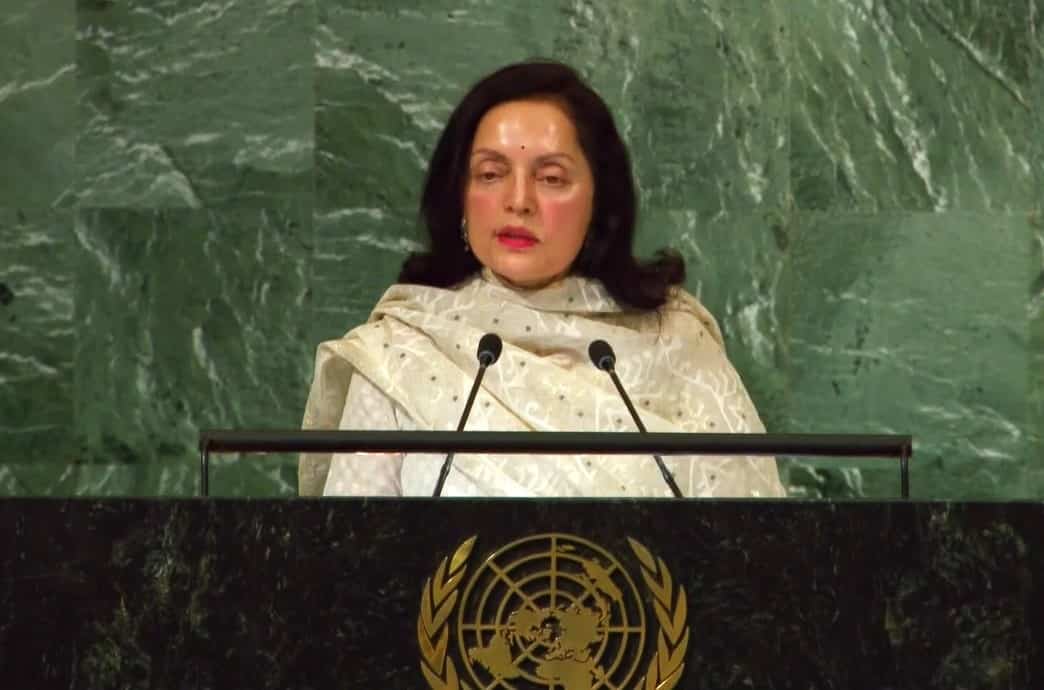
United Nations: Highlighting the importance of equity, affordability and accessibility when it comes to food grain distribution, India has said open markets must not become an argument to perpetuate inequity and promote discrimination.
The remarks by India’s Permanent Representative to the UN Ambassador, Ruchira Kamboj, came during the UN Security Council open debate on ‘Famine and Conflict-Induced Global Food Insecurity’ on Thursday.
In her address, Kamboj also reaffirmed India’s support for the UN’s efforts in continuing the Black Sea Grain initiative and said India’s G-20 Presidency is committed to “in our Prime Minister’s words, depoliticising the global supply of food, fertilizers and medical products so that geopolitical tensions do not lead to a humanitarian crisis.” “The global food insecurity situation is daunting, with an increasing number of people facing acute food shortages over the past four years.. In a world ridden with ongoing armed conflicts, food, fertilizer, and energy crises pose significant challenges, especially for countries in the Global South. The solutions lie in collective global action, as no single country can handle these challenges alone,” she said.
According to UN estimates, 362 million people in 62 countries require humanitarian aid, a record high.
India also made several suggestions for the consideration of the Council to find a solution.
“It is necessary for all of us to adequately appreciate the importance of equity, affordability and accessibility when it comes to food grains. We have already seen to our great cost how these principles were disregarded in the case of the COVID-19 vaccines. Open markets must not become an argument to perpetuate inequity and promote discrimination,” Kamboj said.
She also said the global community must work together to find common solutions through dialogue and diplomacy.
“Choosing peace, cooperation, and multilateralism is essential for building our collective future. Strengthening the international architecture and governance systems to protect the Global Order, Global Laws, and Global Values is a shared responsibility,” Kamboj said.
“Addressing the growing food grain shortages requires us to go beyond current constraints. India is committed to playing its part in addressing contemporary global challenges, as reflected in our membership in the Champions Group of the Global Crisis Response Group,” she added.
The Global Crisis Response Group (GCRG) was set up by the UNSG in March 2022 to address urgent and critical global issues pertaining to interlinked crises in food security, energy, and finance and to coordinate a global response.
India, she said, supports the efforts of the UN Secretary-General Antonio Guterres in continuing the Black Sea Grain Initiative and hopes for an early resolution to the present impasse.
Russia last month announced it was terminating the implementation of the UN-brokered deal that allowed the export of grain and related foodstuffs and fertilisers from Ukrainian ports.
“Recent developments in this matter have not helped in securing the larger cause of peace and stability,” Kamboj said.
Last month also India voiced support for the UN’s efforts in continuing the Black Sea Grain Initiative.
The UN-brokered Black Sea Initiative agreed by Russia, Turkiye, and Ukraine allowed millions of tonnes of grain and other foodstuffs to leave Ukraine’s ports.
She said food assistance alone surely cannot be a long-term sustainable solution to food insecurity.
“Peacebuilding and development is paramount and must include livelihood support, social protection programmes, and community-based approaches including investment in agriculture infrastructure and capacity-building in rural development, especially in conflict areas. This calls for a multi-stakeholder approach,” Kamboj said.
“Armed conflicts, terrorism, extreme weather events, crop pests, food price volatility, exclusion, and economic shocks can devastate any fragile economy, leading to food insecurity and an increased threat of famine. Therefore, providing capacity-building support to countries facing these challenges in designing, implementing, and monitoring food-related policies and programs is of utmost importance,” she said.
India, she said, has always been proactive in assisting our partners in times of distress in keeping with its foreign policy priority of “Neighbourhood First” and its firm belief in the abiding ethos of Vasudhaiva Kutumbakam, the world is one family.
“Leveraging our Presidency of the G20, India has advocated for greater efforts to accelerate the achievement of the SDGs, including SDG 2 calling for zero hunger,” she said.
